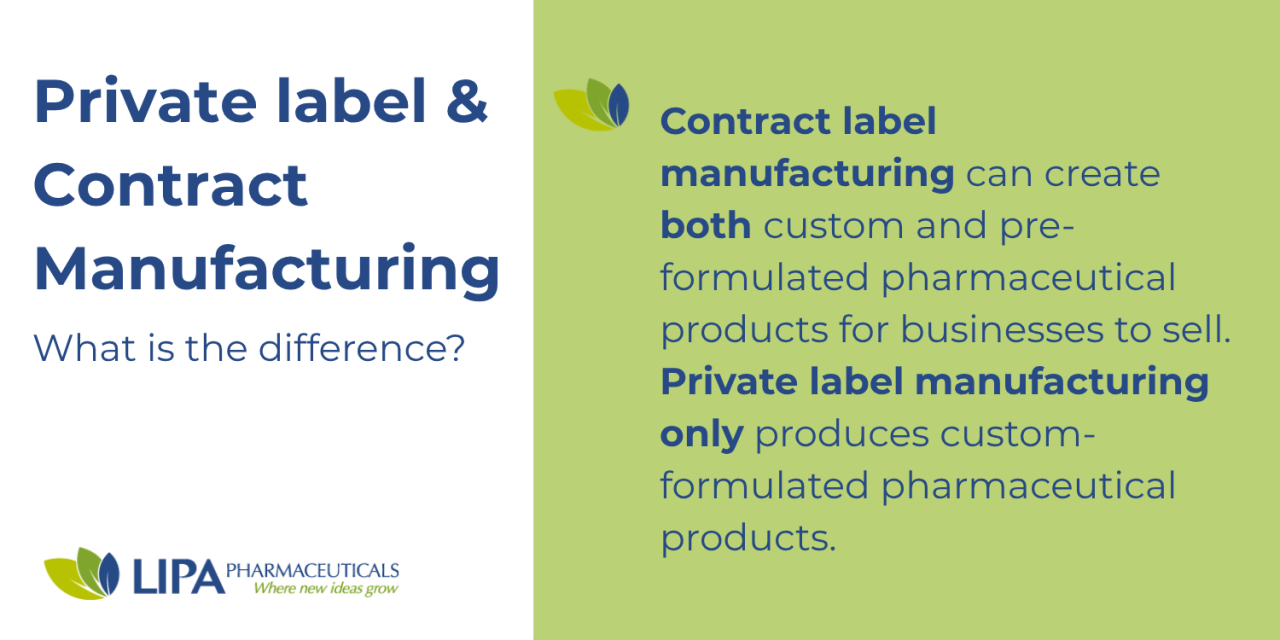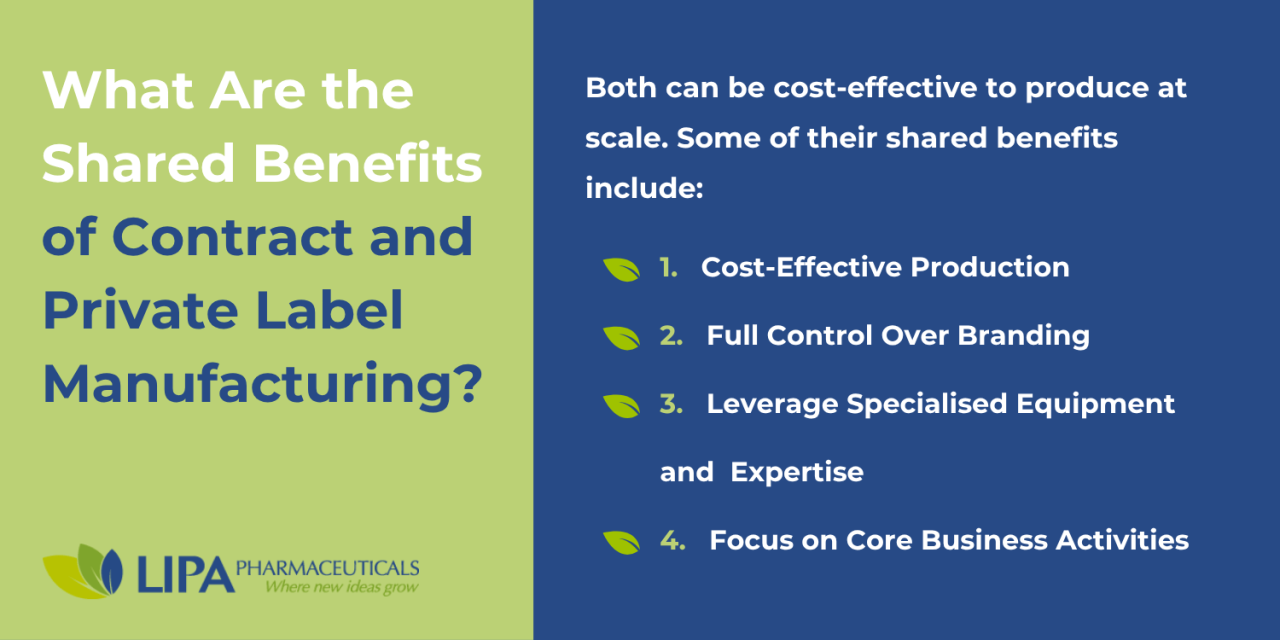
Contract Manufacturing Vs. Private Label: Key Differences Explained
Contract manufacturing and private label manufacturing are often used interchangeably in specialised industries - including pharmaceuticals. While both services share many similarities, they offer different levels of manufacturing support for businesses to achieve a customised pharmaceutical product.
What Is the Difference Between Contract Manufacturing and Private Label?
Contract manufacturing is the umbrella term for arrangements where businesses outsource the production of a specific product to a third-party contract manufacturer. Types of contract manufacturing arrangements include OEM (Original Equipment Manufacturer), white label, and private label manufacturing.
Private label manufacturing is a type of contract manufacturing arrangement that allows businesses to create a customised pharmaceutical product that will only be sold under their brand.
Not all contract manufacturing arrangements allow businesses to create a customised pharmaceutical product - for example, white label manufacturing offers pre-formulated products that can be packaged and sold under a business's brand.
The key takeaway is that private label manufacturing is only one type of contract manufacturing arrangement. When outsourcing production to a contract manufacturer, businesses must choose the right type of arrangement, depending on the type of product.
Shared Benefits of Contract and Private Label Manufacturing
Cost-Effective Production
Contract manufacturing and private label services both offer a cost-effective way for businesses to produce pharmaceutical products at scale.
The pharmaceutical industry is highly regulated; businesses that want to carry out production in-house face high upfront capital investments to ensure equipment, staff, and facilities adhere to local regulations.
Contract manufacturers enable businesses to achieve a lower production cost by fulfilling the regulatory requirements on their behalf.
Full Control Over Branding
All contract manufacturing arrangements provide businesses with full control over the branding and marketing of the final product. Most private label arrangements include packaging and labelling services to make it easier for businesses to take the product to market.
Leverage Specialised Equipment and Expertise
Both contract and private label manufacturers provide the specialised production equipment and industry experience needed to create high-quality products. This allows businesses that have little to no experience in the pharmaceutical industry to develop a line of products that can be sold on the market.
Focus on Core Business Activities
Outsourcing specialised production to a contract or private label manufacturer allows businesses to focus their efforts on core aspects of the business, such as marketing and lead generation. With more time to focus on running the operations, businesses have a higher likelihood of securing profitability.
How Private Label Differs from Contract Manufacturing
Unlike contract manufacturing, which can involve both custom and pre-formulated products, private label manufacturing only produces custom-formulated pharmaceutical products for businesses. Custom-formulated products can be based on an existing formula owned by the business, or an entirely new formula developed in partnership with the manufacturer.
Whether a private label manufacturer can develop a custom formula for a new product will depend on its service offering - CMO or CDMO.
CMOs (contract manufacturing organisations) offer private label services that only involve production, as they have no product development capability to create new formulations. Businesses that work with a CMO for pharmaceutical manufacturing will already have an existing proprietary formula - the production is outsourced to the CMO for increased scalability and lower costs.
CDMOs (contract development and manufacturing organisations) provide an end-to-end service for the development and production of custom pharmaceutical products, including formulation and testing, regulatory support, product packaging, and quality assurance. Working with a CDMO is ideal for businesses that need help creating a new pharmaceutical product to sell under their brand.
Choosing Between Private Label and Other Types of Contract Manufacturing
The right contract manufacturing arrangement will depend on what your business wants to achieve for a pharmaceutical product. If your business wants to produce a custom pharmaceutical product, a private label arrangement can be more suitable.
Businesses that want to choose from a list of pre-formulated products offered by a manufacturer can opt for white label manufacturing. White label products are not unique in terms of formula, but have a shorter production timeline and require fewer regulatory approvals.
Lipa Pharmaceuticals is an award-winning CDMO based in Australia, offering high-quality contract pharmaceutical manufacturing for businesses. Our private label manufacturing services cover the entire process of creating a custom-formulated product, starting from the initial market research and formula development right up to production and packaging. Our state-of-the-art, GMP-certified production facilities and an in-house research team can deliver lower risk (AUST L) and higher risk (AUST R) medicines according to the TGA's regulations.
Get in touch with our team to discuss how we can fulfil your contract manufacturing needs. We have experience developing pharmaceutical products for the local Australian market as well as international markets.
Related Posts
By accepting you will be accessing a service provided by a third-party external to https://www.lipa.com.au/







